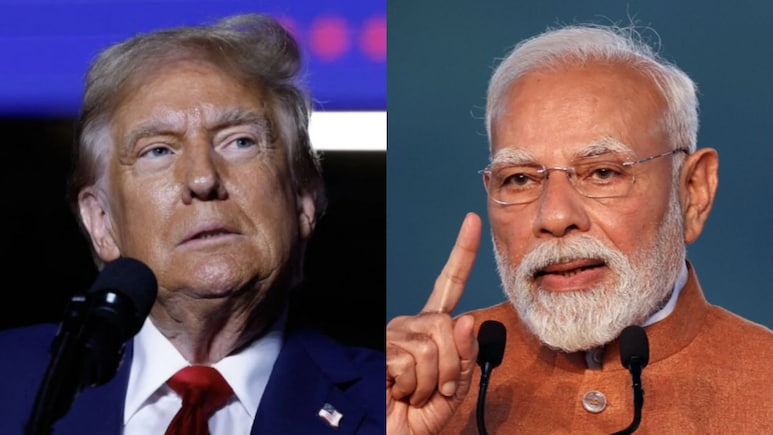
- India faces 50% US tariffs after Trump penalises Russian crude purchases
- India denies US role in India-Pakistan ceasefire after Pahalgam terror attack
- China avoided tariffs as it did not claim US credit for ceasefire talks
As India makes it clear that it is ready to stand up to US President Donald Trump's tariffs offensive, a South Asia analyst has explained the link between the ceasefire that paused the India-Pakistan conflict after the Pahalgam terror attack and Washington DC's tariffs move.
Michael Kugelman, director of the South Asia Institute at the US-based Wilson Center, spoke to news agency ANI after Trump announced an additional 25 per cent tariffs on Indian exports, taking the total tariff burden to 50 per cent.
Trump has said it was a 'penalty' for India's continued purchase of Russian crude oil. New Delhi, which has maintained that it buys Russian oil to ensure energy security for its people, has called the US action "unfair, unjustified, and unreasonable". The Ministry of External Affairs also said that it was "extremely unfortunate" that the US imposed additional tariffs on India for actions that several other countries are taking. These countries include India's neighbour, China.
#WATCH | Washington DC | On being asked about why President Trump is not punishing China, but targeting India (for Russian imports), Director of the South Asia Institute at the Wilson Center, Michael Kugelman says, "...China has not stood out there and refused to let President… pic.twitter.com/OkDwhu7S7t
— ANI (@ANI) August 6, 2025
Asked why Trump's tariff attack does not have China in its crosshairs yet, Kugelman replied, "China has not stood out there and refused to let President Trump take credit for his role in the ceasefire. China has not had its leader have a long conversation with Trump on the phone and essentially dictate to him what's right and what's wrong. These are things that happened with India.
"So I think that's why perhaps President Trump would reserve some of his greatest ire on the trade and tariff front for India and for the Indian government. Indeed, it's a double standard. It's hypocritical, whatever you want to say," he said.
The South Asia expert was referring to Trump's repeated claims that he brokered the ceasefire between India and Pakistan after New Delhi launched Operation Sindoor to avenge the Pahalgam terror attack. Despite Trump's claims, India has maintained that the decision to agree on a ceasefire was taken on Pakistan's request and not due to the US intervention. Prime Minister Narendra Modi has told Parliament that "no world leader asked India to stop its military operation".
New Delhi's stand effectively foiled the US President's attempt to take credit for ending the hostilities between the two neighbours.
Pakistan, on the other hand, has thanked Trump for the US intervention and has been rewarded with a trade deal.
The unease in the India-US relationship has also paused the ongoing talks for a trade pact after India refused to grant higher access to its key sectors, such as agriculture, to safeguard farmers. Sending a strong message after the Trump tariffs kicked in, Prime Minister Modi said, "The interest of farmers is our top priority. India will never compromise with the interests of its farmers, livestock holders, and fishermen. And I know that I will have to pay a huge price for this personally, but I am ready. India is ready, for the sake of the country's farmers, fishermen and livestock holders."
Kugelman has described the current India-US tension as the "worst crisis" the bilateral relationship has faced in over two decades and added that it could have a "damaging impact". However, he said, the broad relationship between the two countries can withstand "shocks".
"I think this is the worst crisis that the relationship has faced over the last two decades of strategic partnership... I would argue that there is potential for this relationship to be salvaged, not just because of the natural, shared interests and the strategic convergences, but this is a relationship that is multifaceted and has many different areas of cooperation that play out on parallel tracks and have the insulation to withstand shocks to the broader relationship," he said.
Track Latest News Live on NDTV.com and get news updates from India and around the world

